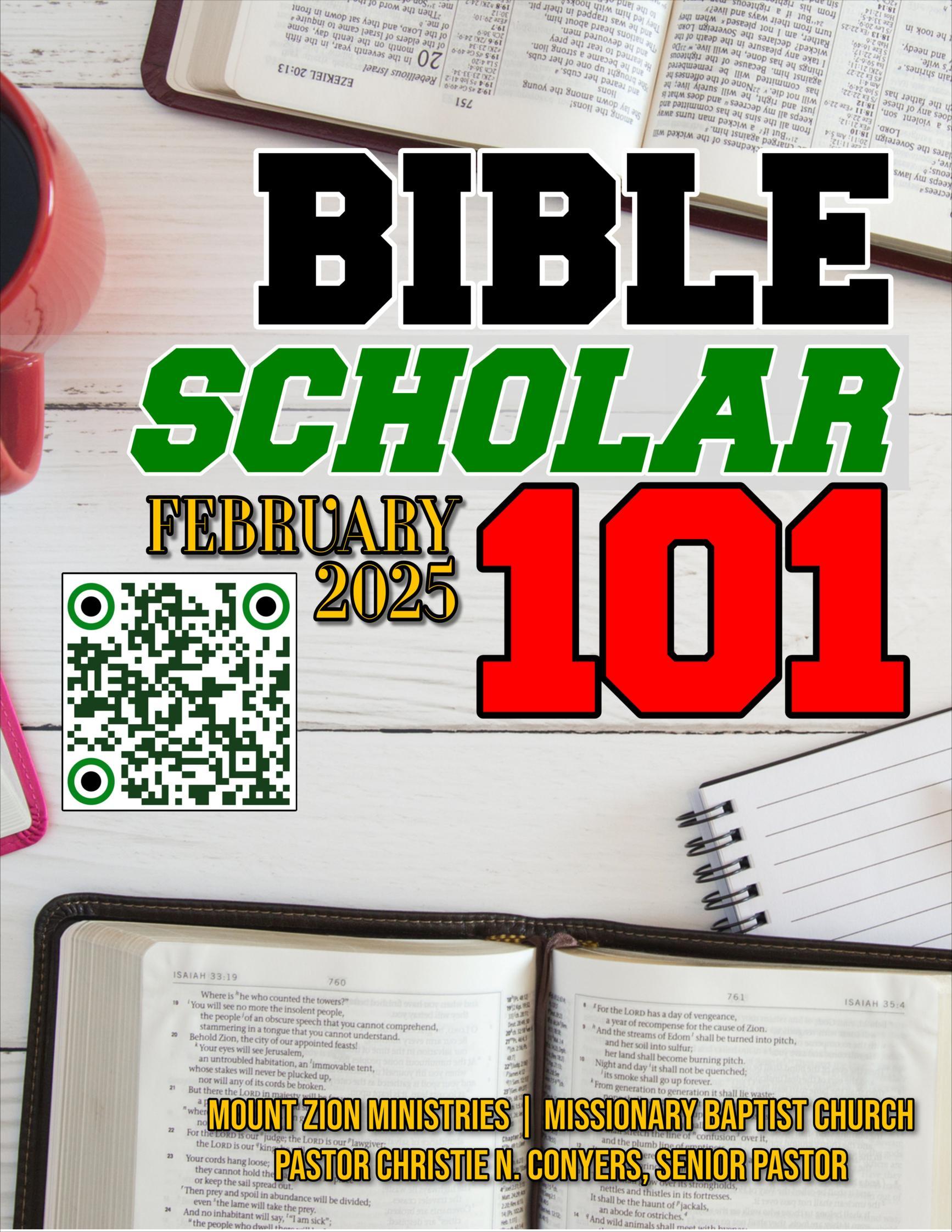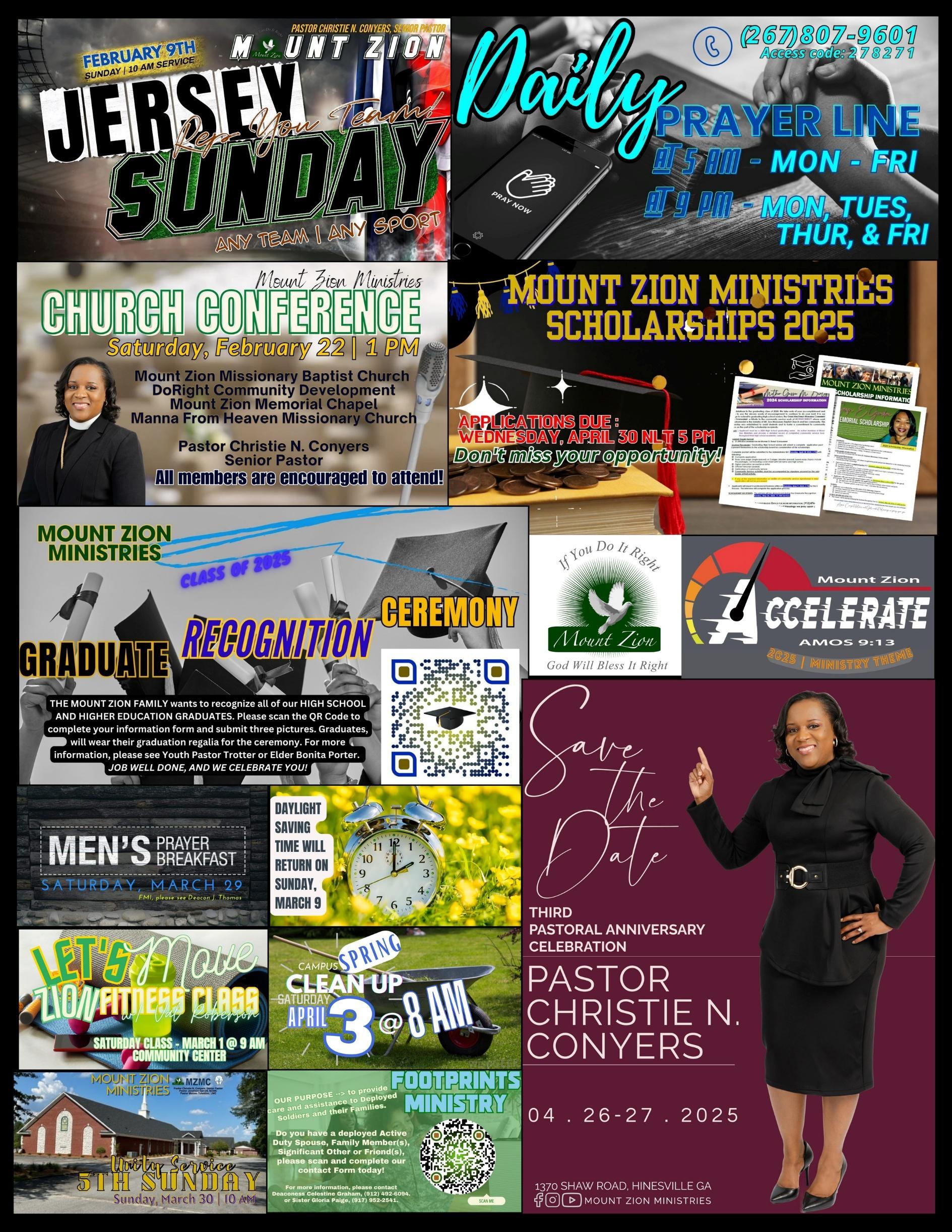






FOCUS SCRIPTURE: Study to show thyself approved unto God, a workman that needeth not be ashamed but rightly dividing the word of truth. 2 TIMOTHY 2:15
OBJECTIVES


To believe more deeply that we are to diligently study the bible to present ourselves as faithful servants of God
To feel more passionately about digging deeper into God’s word to discover truth.
To more readily apply principles and methods of studying to rightly divide God’s word.
Let’s face it. The Holy Bible can be a large intimidating feat to read and understand without a strategy, tools, and skills to aid in attaining an accurate and sound interpretation of what’s before you. It’s filled with extensive history, a plethora of stories and characters, poetry, laws, letters, and songs. Sometimes knowing where to start can present itself as a challenge. When we don’t know where or how to begin studying God’s word, we will shy away from buckling down and digging in to discover truths. A preacher helps us to receive by faith, however we must also couple with our own independent study to cultivate a life of loving and living the scriptures.
2 Timothy 2:15 states, “Study to show thyself approved unto God, a workman that needeth not be ashamed but rightly dividing the word of truth”. As Paul pens these words to young Timothy, he understands the necessity of knowing the word without being ashamed under any circumstances. Paul wanted to ensure that Timothy could stand confidently, avoiding confusion or error, while handling this word correctly. We can imply from this text that study is not a passive act, but rather requires diligent effort and intentionality. You must develop discipline and focus as you present your study time as an offering to God that reflects your honor to Him.
As we cover essential tools throughout this series, we will become effective Bible Scholars, ready to meet the joys and challenges of new discoveries. Deep study can also reveal some misunderstandings of what we previously believed to be correct. In these moments, pray to God for clarity and the courage to confront previous errors in reading. You will need this to live out correctly what you’ve learned. Once you become aware of what the scriptures teach, it becomes your responsibility to live what
you know. Whoever knows the right thing to do and fails to do it, for him it is sin (James 4:17 ESV)
In biblical interpretation, context means looking at verses and passages in relation to the verses, chapters, and broader narratives that surround it. This involves knowing the themes and ideas the author was thinking about when writing. Context is crucial to understanding as it also includes cultural and historical factors during the time it was written. We must be careful to avoid taking a verse out of its original setting to avoid misinterpretation.
Biblical interpretation is both an art AND a science. Just as we used language rules, cues, tones, and grammatical principles to help decode and understand speech, we also use them to aid in biblical interpretation. Klein, Bloomberg, & Hubbard (2017) uses the phrase “I love you” to demonstrate the nuances of understanding language. Just these three words have different meanings, depending on who is using them. The authors of Introduction to Biblical Interpretation states,
“I love you as spoken by a teenage girl to her boyfriend, a husband to his wife of 25 years, a mother to her child, or an aging baby boomer to his mint-condition ‘57 Chevy” (pg. 43) can all carry vastly different meanings. “In light of this, how much more must modern biblical interpreters seek to bridge the linguistic, historical, social, and cultural gaps that exist between the ancient and modern worlds so that they may understand what texts mean?” (pg. 43).
This one of many examples that we will discuss demonstrates the need for accurate interpretation. Some argue that the Holy Spirit is enough and that we don’t need anything else to determine what the scriptures explicitly mean. Yes, the Holy Spirit’s role is indispensable in helping us understand scripture, however, it could be potentially dangerous to use as the only source for illumination. Yes, the Holy Spirit teaches us to believe the bible is the inspired word of God and how to apprehend (or take hold of) its value. Yet, sometimes we may have to use other sources to help determine meaning. An example by Klein et al. (2017) is Matthew 25:3 which poses the question, what did Jesus mean when he said “...for they make their phylacteries broad and their fringes long?” Here the Holy Spirit is well able to reveal to us the meaning, and you can also use another source to apply its meaning.
● Isolating Verses: Taking verses out of context can lead to misinterpretation. Always study verses in their context.
● Ignoring the Historical and Cultural Background: Failing to understand the original audience, culture, or circumstances can distort meaning.
● Over-Spiritualizing: While the Bible is spiritually profound, not every passage is meant to be interpreted metaphorically. Some are meant to be understood literally or historically.
● Personal Bias: Approach the Bible with an open heart, not trying to make it fit your personal preferences or beliefs. Let the Word shape your views, not the other way around.
We can hone our skill of accurate biblical interpretation by asking the right questions. The example given below is a foundational starting point for understanding the scriptures. Asking the right questions will help from interpretation of the scriptures based solely on our personal worldview and experiences. Naturally, we all lean toward deciphering what the texts mean through our own personal lens.
1. Who? - Who wrote this? Who is it written to? Who is involved in the passage?
2. What? - What is the main point or message? What is happening?
3. When? - When did this happen? When was it written?
4. Why? - Why is this passage important? Why was it written? What does it teach me about God and His will?
5. How? - How does this apply to my life? How do I live out the truths of this passage?
Asking the right questions also further reveals additional challenges. We now have the distance of time, the distance of culture, geographical distance, and the distance of language. We are privy to the Western worldview of now, but what about 1900-2000 years ago? We are far removed from the way things actually were. Our interpretation aims to fill the gaps, preserve the original meanings, and accurately apply them to daily living.
1. How do you approach Bible study? What challenges do you face in interpreting Scripture accurately?
2. How can you apply the principle of "rightly handling the Word" in your daily life?
3. Share a passage from Scripture that you’ve studied recently. How did understanding the context affect your interpretation?
Bible Scholars! Let’s get to work. Your first step in understanding the word is to start reading daily!
Here's a 30-day Bible study plan centered on studying, meditating on, and living out God's Word:

● Meditation: As you read each passage, take time to pause and reflect. Ask questions like: What does this passage teach me about God’s Word? How can I apply this today?
● Prayer: Begin and end each reading with prayer. Ask God for understanding, wisdom, and a heart that delights in His Word.
● Cross-References: Use a study Bible or online resources to cross-reference key terms or themes. This will help you deepen your understanding of the text.
● Journaling: Write down any insights, questions, or personal applications you get from each day's reading. This will help you internalize the truths you're learning.
● Application: Each day, try to apply the lesson in a practical way. For example, if the reading talks about meditating on God's Word, spend some extra time reflecting on a specific verse or passage.
Studying the bible is about gathering information and knowledge, but not as a stand alone. Becoming a Bible Scholar must include transformation as a result of your diligent study. As we grow and present ourselves as God approved, we can confidently rightly divide the word and accurately apply it to our lives. We have a responsibility to become faithful stewards of God’s word and live it out loud accordingly.


Cross-referencing other scriptures and outside resources is an essential practice for gaining deeper understanding, broadening perspectives, and enhancing the interpretation of texts, especially in academic, religious, or literary contexts. Here are some key benefits:
1. Contextual Understanding
● Scriptural Cross-Referencing: Many scriptures complement or elaborate on each other. Cross-referencing helps clarify the meaning of a passage by comparing it with related texts within the same scripture or other religious works. (example Joel 2:28 and Acts 2:2-4, 16-21)
● Outside Resources (Bible Dictionary/Bible Charts, Maps and Timelines/Bible Commentary): Historical, cultural, or linguistic studies provide background context that helps decode complex or ambiguous passages. (Exodus 28:4) (John 11:35)
2. Broadens Perspectives
● Cross-referencing exposes you to diverse viewpoints (Synoptic Gospels). For example, consulting different translations, commentaries, or interpretations can illuminate nuances and uncover meanings that might not be apparent from a single source.
The Gospels also differ in their thematic emphases, highlighting specific aspects of Jesus' identity and mission. For example, Matthew emphasizes Jesus as the fulfillment of Old Testament prophecies and the rightful heir to the throne of David, underscoring his role as the long-awaited Messiah. Mark, on the other hand, emphasizes Jesus' powerful deeds and his identity as the suffering servant, portraying him as a figure of action and humility. Luke's Gospel emphasizes Jesus' compassion for the marginalized and oppressed, as well as his universal message of salvation for all people.
What translation do you enjoy reading and assisting you with understanding? Utilizing resources from various traditions or disciplines (like archaeology, anthropology, or philosophy) can reveal connections you might not have considered.
3. Ensures Accuracy
● Comparing multiple sources minimizes the risk of misunderstanding or taking a passage out of context.
● It helps identify potential biases or misinterpretations by consulting a wider pool of insights. (ex. Genesis 2:17)
At first glance of Genesis 2:17, what would you expect to happen to Adam and Eve after eating the fruit? How do you explain what occurred and what eventually occurred with another scripture?)
4. Encourages Deeper Study
● Cross-referencing inspires curiosity and drives further research. Each reference opens up new layers of meaning, making the study process more engaging and rewarding.
Cross reference Psalm 22:1 and Matthew 27:46. Who is speaking in Psalm 22:1? What did you notice and what did you learn?
5. Validates Interpretations
● When a particular interpretation aligns with multiple sources, it lends credibility and weight to your understanding.
● This is particularly important in academic or theological discussions where evidence-based reasoning is valued. (ex. Isaiah 9:6 and Luke 1:26-28)
6. Fosters Interdisciplinary Insights
● Bringing in outside resources, such as literary works, scientific theories, or historical records, can enrich your understanding by linking scripture or text to broader human knowledge.
Who is Martin Luther and what is he famous for doing?
7. Enhances Application
● Practical application of knowledge often benefits from external resources that provide real-world examples, ethical insights, or contemporary relevance.
1 Samuel 17:1-3, what do you see geographically? Where are both armies located and what is in between the two? (Read Psalm 23:4).
Studying the Bible is an amazing journey because it offers timeless wisdom, profound guidance, and spiritual enrichment. It allows us to explore themes of love, hope, faith, and redemption, providing insight into human experience and our purpose. The Bible connects us to a larger narrative, fostering a sense of belonging and purpose while deepening our understanding of God, ourselves, and the world around us. Its teachings inspire personal growth, moral clarity, and a foundation for meaningful relationships and choices. Ultimately, studying the Bible transforms lives by offering hope, peace, and the assurance of divine love.
ashamed but rightly dividing the word of truth. 2 TIMOTHY 2:15


OBJECTIVES
To believe more deeply that we are to diligently study the bible to present ourselves as faithful servants of God
To feel more passionately about digging deeper into God’s word to discover truth.
To more readily apply principles and methods of studying to rightly divide God’s word.
Most churches gather on a day of the week for Bible Study. At Mount Zion, our day of the week is Wednesday. We collectively gather as believers to comprehend God through His word during that time. This time together has allowed us (believers) to share personal stories, experiences, and testimonies and respond to questions in a nurturing and caring environment.
The weekly gatherings have been inciteful, empowering, and life-changing. Aside from the weekly gathering, we must go beyond the designated hour of studying the Bible for various reasons:
1. The Bible study lessons are designed to ignite a passion for making believers want a deeper understanding of God and the scriptures.
2. Since the Bible is an extraordinary book filled with captivating stories and the exciting history of God’s people over time, believers must study.
3. Studying the Bible matters because God matters; we study it because it is God’s word, and He told believers to study. His words are valuable and are to be desired.
a. Psalm 19:10 says, “More to be desired are they than gold, even much fine gold; sweeter also than honey and drippings of the honeycomb.”
b. 2 Timothy 3:16-17 states, "All Scripture is God-breathed and is useful for teaching, rebuking, correcting and training in righteousness, so God can thoroughly equip us for every good work."
Studying the Bible is different from reading the Bible. When we study the Bible, we take our time to read and think things through; we ask questions, search for meaning, and consider implications. When we study the Bible, we are exposed to a systematic examination and interpretation of the Bible. This systematic examination involves reading, analyzing, and reflecting on the scriptures to gain a deeper understanding. This systematic examination opens the door to a greater sense of historical context and their applications in daily life. To experience or enrich our spiritual growth, knowledge, and faith, let's discuss the sections of the Bible and how to study each section.
The Bible is a collection of sacred texts that hold profound significance for billions of people across various cultures and faiths. The Bible has two main sections: the Old Testament and the New Testament, each containing multiple books encompassing a diverse range of literary genres, including history, poetry, prophecy, and guidance for living a moral life.
The Old Testament, comprising 39 books, tells the story of God's people, Israel, and leading to Jesus Christ. The Old Testament is primarily rooted in the ancient history of the Israelites, detailing their covenant with God, the laws given to them, and the prophetic messages calling them to faithfulness. It includes well-known narratives such as the creation story, the Exodus from Egypt, and the reign of kings like David and Solomon.
The New Testament contains 27 books about Jesus’ life, ministry, and early church. The New Testament centers on the life, teachings, death, and resurrection of Jesus Christ and the early Christian church. It introduces the Gospels, which recount the life of Jesus, and the Epistles, which are letters written by early church leaders providing theological insights and practical instructions for Christian living. The Bible comprises 66 books, with two main categories and eight subcategories within the Old and New Testaments.
The Old Testament encompasses a collection of texts sacred to Christianity. It consists of various books categorized mainly into the following sections:
• The Pentateuch (or Torah, The Law): The Pentateuch consists of the first five books Genesis, Exodus, Leviticus, Numbers, and Deuteronomy. These texts detail the world's creation, the origins of humanity, and the covenant between God and the Israelites, outlining laws and religious practices. The story of Abraham tells how God “fathered a covenant people (Hebrews/Israelites),” through which His restoration plan would be fulfilled.
• Historical Books: These narratives include Joshua, Judges, Ruth, 1& o 2 Samuel,1&2 Kings, and 1&2 Chronicles, Ezra, Nehemiah, and Esther. These books chronicle the history of the Israelite people from their conquest of
Canaan through their monarchy and eventual exile. After 70 years in exile, the people returned to Jerusalem to rebuild the city and stayed there for 400 years, waiting for the promised Messiah.
• Wisdom Literature, Poetry: This subcategory includes books like Job, Psalms, Proverbs, Ecclesiastes, and Song of Solomon. These books offer poetry, philosophical reflections, and practical teachings on life, morality, and how to have reverence for God.
• Prophetic Books: This subcategory comprises both Major Prophets and Minor Prophets. The first five books are called the Major Prophets, not because they are greater, but longer. The books are Isaiah, Jeremiah, Lamentations, Ezekiel, and Daniel. The other 12 books are called Minor Prophets because they are shorter. Minor prophets are Hosea, Joel, Amos, Obadiah, Jonah, Micah, Habakkuk, Zephaniah, Haggai, Zechariah, and Malachi. These texts contain messages of warning and hope, calling the Israelites to repentance and foretelling events related to the coming Messiah. After the last prophet, Malachi, Israel entered 400 years without a prophetic word from God.
The New Testament focuses on the life and teachings of Jesus Christ and the early Christian church. It consists of:
• The Gospels: After four centuries, a new prophet, John the Baptist, arrived to prepare the way for the Messiah. The books Matthew, Mark, Luke, and John present the birth, ministry, death, and resurrection of Jesus, each offering unique perspectives and emphasizing different aspects of His identity and mission.
• Acts of the Apostles (Early Church History): Before Jesus ascended into Heaven, He told His followers to “go and make disciples of all nations.” This book narrates the formation and expansion of the early church after Jesus’ ascension, detailing the spread of Christianity throughout the Roman Empire.
• Epistles: A collection of letters written by early church leaders, chiefly Paul, that provide theological insights and practical advice to various Christian communities. These writings address issues of faith, morality, and church governance. Additional disciples, like Peter, James, and John, wrote letters that complemented Paul’s letters, identifying characteristics of living a life like Christ. The epistles include Romans, 1&2 Corinthians, Galatians, Ephesians, Philippians, Colossians, 1&2 Thessalonians, 1&2 Timothy, Titus, Philemon, Hebrews, James 1&2 Peter, 1,2&3 John, and Jude.
• Revelation, Prophecy: The final book of the New Testament, attributed to John, provides a vivid and symbolic vision of the end times and the ultimate triumph of good over evil. This letter captures a vision describing Jesus’ return and the end of
the earth. These last days reveal our redemption and communion with God, being restored permanently.
The believer's attitude towards studying the Bible is essential. If believers approach Bible study correctly, knowledge and understanding will increase. Proverbs 17:22 says, “A joyful heart is good medicine, but a crushed spirit dries up the bones.”
Approach the study of the Bible with openness. An open heart and open mind allow believers to receive and consider what the scripture says without preconceived notions or biases. Approach the study of the Bible with humility. Forty different people wrote the Bible over the years. Acknowledge upfront that there may be things you don’t understand or things that challenge your beliefs. Approach the study of the Bible with curiosity. Each time you open your Bible, believers should strongly desire to know or learn something approach studying the Bible with reverence and patience. Believers should treat the Bible respectfully because it is sacred scripture that the Holy Spirit speaks of. Believers should realize that studying the Bible is a lifelong journey.
The Old Testament – To study the Old Testament, focus on understanding the historical context, literary style, and theological themes. You can use commentaries and study guides for deeper insights.
The New Testament – To study the New Testament, pay attention to the life of Jesus, the early church, and the principles of Christian living. Group studies and discussions can enhance understanding.
The Pentateuch – Study the chronological approach and take notes on themes of redemption and promise.
Historical Books – Analyze the narratives, how the Bible tells the story, the plot, characters, and how it is organized in Israel’s history. Consider the context of each event and reflect on how God's sovereignty is displayed.
Wisdom, Literature – Engage in reflective reading. Pay attention to poetic devices and explore life’s complexities, questioning, and divine justice.
Prophets – Study the messages of judgment and hope. Look for historical context and consider how the prophecies relate to Jesus and future events.
Gospels – Examine the life and teachings of Jesus. Compare the accounts of each Gospel writer for a fuller understanding of His ministry.
Epistles – Focus on theological teaching and practical applications, as well as the central message and beliefs that the Bible conveys about God.
Revelation – Approach the apocalyptic text with caution. Study the symbols and visions, considering historical context and future implications.
Other study techniques include thematic studies, character studies, and verse-by-verse analysis. Keep a journal for reflections and insights and utilize online resources or apps for additional study material. Always consider how the teachings apply to your life today. Prayer and meditation can help integrate the lessons learned into daily living.
FOCUS SCRIPTURE: Study to show thyself approved unto God, a workman that needeth not be ashamed but rightly dividing the word of truth. 2 TIMOTHY 2:15
OBJECTIVES


To believe more deeply that we are to diligently study the bible to present ourselves as faithful servants of God
To feel more passionately about digging deeper into God’s word to discover truth.
To more readily apply principles and methods of studying to rightly divide God’s word.
Over the past few weeks, you have been given many tools that are aimed at helping you to become a more effective Bible scholar. Some of these tools you may use sparingly. However, some of these tools you will carry with you throughout your journey with the Lord Jesus. You have learned of the different genres of the Bible. You have learned the importance of reading the Bible in context by researching facts such as who the author was, who the audience was, what the purpose of the writing was, and what the historical background was when the text was written.
We have explored some common mistakes one can make when studying the Bible. We have also learned the art of cross-referencing other scriptures and how to use tools like the Concordance, Study Bibles, and commentaries.
This week, we will put all these things into action and truly “Study to show ourselves approved unto God!” Below, you will see two different forms, one from a School of Divinity and one that may look very familiar, that can be used in our quest to truly understand the Word of God and become the Bible Scholars He intends for us to be.
Primary proposed text
Who is the author of this text?
To whom was this text written?
What is the historical setting of this text?
What important names, places, events, or theological terms or themes appear in this text?
What is the Central Idea (Exegetical Idea) of the text and how does the biblical writer develop it?
1. Subject: (What is the author writing about?) The subject is presented in a question format.
2. Complement: (What does the author say about the subject?) The complement provides an answer to the question presented by the subject.
3. Central Idea: In a single sentence, state the central idea of the passage by combining the subject and complement.
4. Does the biblical writer develop the idea through narrative, explanation, proof, application or some combination?
A. What did the biblical writer expect the readers to do in light of this text?
B. What should today’s hearer do as a result of hearing this sermon?
In light of the purpose of this sermon, I want the hearers to:
1. Believe more deeply about (cognitive response)
2. Feel more passionately about (affective response)
3. Do more readily (behavioral response)
1. State the thesis sentence (Homiletic Idea) of the sermon (use vibrant/vigorous verbs). The homiletic idea is derived from accurate exegesis of the text; thus it is a contemporary and compelling expression of the exegetical idea:
2. How should the thesis primarily be developed to accomplish the sermon purpose?
a. _____ As an idea to be explained
b. As a proposition to be proved
c. As a principle to be applied
d. As a story to be told
1. Observing the Biblical Text
a. Read Philippians 4:10-20 in one sitting.
b. Read Philippians 4:10-20 in both a formal/word-for-word translation (KJV, NKJV, NASB, ESV, or CSB) and a functional translation /thought-for-thought (NIV, NLT, or NCV). You can find a copy of these translations at BibleGateway.com.
c. After reading Philippians 4:10-20 these three times, note your initial observations of this passage in the chart below.
10 Paul is expressing his gratitude for the care the Philippians have shown him.
10 Paul acknowledged that there were times the Philippians desired to send care but could not.
11-12
Paul states that he does not need anything because he has learned to live with and without and be content.
13 Key Verse* Paul reveals that Jesus is the source that allows him to be content and keep going, whether things are fat or lean.
14 Paul reiterates that it was good that they helped him when he was in need.
15-16 Paul reminds them that they were the only church that helped him. They aided him several times while he was in Thessalonica.
17 Paul explains that he wanted them to have the good that comes from giving more than he wanted the gifts.
18 Paul expresses that God is pleased with the gift they had sent by Epaphroditus.
19-20 Paul blesses the Philippians and gives them benediction.
10-20 Paul is overjoyed by the behavior of the Philippians and their generosity.
d. Using your Bible and the chart of observations on Philippians 4:10-20 you have constructed above, record the major facts of the passage. For this exercise, you should not consult any outside resource. You are simply writing down what you have observed in reading the Scriptures.
I. Who (main characters in the narrative): The Apostle Paul, The church at Phillippi, The Lord Jesus, God the Father
II. What are the circumstances? Paul is imprisoned, and he has written this particular passage of scripture to encourage the Philippians, who have taken diligent care of him.
III. Where (setting): The audience is located in Philippi, and Paul is in prison. Many believe that he is in prison in Rome, but this cannot be confirmed.
iv. When (What section of the Old Testament and/or when in the history of Israel): Pauline Epistle, Post Ascension era, this passage is thought to have been written around the year 62 A.D. after his third missionary journey.
a. Literary Context: In 200-400 words, identify where Philippians 4:10-20 (specifically v. 13) fits in relationship with the rest of the book of Philippians. Describe where Philippians 4:10-20 fits with the rest of Pauline Literature. Describe how Philippians 4:10-20 fits into the rest of the New Testament. Last level of correlation and identification of the literary context, how does Philippians 4:10-20 fit in the message of the entire Bible? You must interact with a minimum of 1 academic source and include biblical references to support your findings.
Philippians 4:10-20, specifically verse 13, fits with the rest of the book of Philippians because, for lack of better terms, it is the key, the secret ingredient, the "sauce." Paul is letting the Philippians, and, by way of the Bible, let us know that everything he has been able to endure, good and bad, has been because Jesus was with him and gave him the strength to persevere. That verse is often misused and taken out of context to mean that anything we want to do can be accomplished through Christ regardless of its “Kingdom impact.” What Paul is saying and why it fits, is that Christ will strengthen you to do every work He has set before you to accomplish. Earlier in Philippians 1, Paul had already declared that “…He which hath begun a good work in you will perform it until the day of Jesus Christ.” (Phil 1:6 KJV)[1]
In context, the book of Philippians, which includes verses 4:10-20, is in the middle of the Pauline Epistles. In particular, looking back over Paul’s journey to this point and realizing the joy and zeal he still possesses to spread the Gospel serves as an example.
In correlation with the New Testament, special consideration should go to the church at Philippi. They set a standard and an example of how the church should operate. Roger Ellsworth explains it like this,
Paul had come to expect this kind of support from this generous church. When other churches failed to give (v. 15), this church had ‘sent aid once and again’ (v. 16).
All of this was the reason Paul engaged in exuberant rejoicing. The Philippians had generously given, but Paul 'rejoiced in the Lord greatly' (v. 10), knowing that the Lord had worked in them (2:13).[2]
The Philippian church shows what is possible and what can be achieved when a body of believers is on one accord and truly trusts the Gospel. Lastly, the passage correlates with the entire Bible because it serves as hope and an example of what can be when one wholly trusts Jesus. From Genesis to Revelations, we see Jesus. What could make a man who has suffered unimaginable suffering have sheer joy? What could make a group of believers give until they could not give anymore? Nothing but the Blood of Jesus. Jesus's sacrifice provided the hope that rested within them, and now their example is etched for all to see.
B. Historical Context: In 200-400 words, describe the circumstance/situation at play in Philippians 4:10-20. List a few differences between this time in antiquity and the modern day (language, location, situation, time, culture, covenant [if studying the Old Testament], etc.). You must interact with a minimum of 3 academic sources and include biblical references to support your findings.
There is little to no evidence of how According to Holman’s Bible Handbook, “The Letter to the Philippians was written while the apostle Paul was in prison probably from Rome about A.D. 62, though we cannot know for sure. Other possible locations for the writing of the letter could have been Ephesus or Caesarea (sometime between A.D. 54 and 62).” [3] Despite his plight, Paul made it a point to write this letter of encouragement to the Church at Philippi. Ellsworth points out, "Paul visited this city on his second missionary journey after receiving a remarkable vision in which ‘a man of Macedonia’ pleaded with him: ‘Come over to Macedonia and help us’ (Acts 16:9).” [4]
Baker’s Encyclopedia of the Bible further highlights that Philippi was known as “The Springs” in antiquity until approximately 357 B.C., when Philip II of Macedon conquered, rebuilt, and renamed it. Philippi claimed Latin as their language and had a rich Latin and military heritage.[5] In Acts 16, it can be seen that the Philippians considered themselves Roman citizens.[6] Although Philippi continued to exist for some time after Paul’s death, it now ceases to exist, and it was destroyed.
C. Authorial Intent: In 200 words, consider the historical and literary contexts (answered above) and state what the author intended to communicate to his original audience of the church in Philippi. Support your findings with a minimum of 1 academic source and include biblical references (outside of the passage) to support your interpretation of the author’s intended meaning.
At the core of Paul’s letter to the Philippians, he intended to encourage them to keep pressing forward in what they were doing and to express joy and thankfulness because of the continual support they had rendered, not so much because of the aid but more so because of the excellent example they were setting and that the Lord would bless their generosity. Bo Reicke further details the intent like this, Philippians is a personal document illustrating the relations between the apostle of the Gentiles at the summit of his life and the congregation that he regarded as nearly ideal. The Epistle is characterized by repeated expressions of joy and exhortations to rejoicing (Phil. 1:4, 18, 25; 2:2, 17f, 29; 3:1; 4:1, 4). These are partly due to Paul’s satisfaction with the readers and gratitude for their help. But there is more than a personal interest behind this emotion of happiness. Paul is dealing with the joy of faith that has an eschatological accent: he is conscious that Christ has come and will come again to bring consummation.[7]
The Apostle Paul was not one to hold back or pull punches. In his first letter to the church at Corinth, Paul writes, “What do you prefer? Shall I come to you with a rod of discipline, or shall I come in love and with a gentle spirit? (1 Cor 4:21 NIV) [8] Paul also was not afraid to challenge his fellow Apostles,
When Cephas came to Antioch, however, I opposed him to his face, because he stood to be condemned. For before certain men came from James, he used to eat with the Gentiles. But when they arrived, he began to draw back and separate himself for fear of those in the circumcision group. The other Jews joined him in his hypocrisy, so that by their hypocrisy even Barnabas was led astray.[9]
These facts drive home the point that Paul’s intent was to ensure the Philippians understood the joy that their care and obedience brought him not so much for his account but for theirs because he understood the eternal benefits of their service.
During this series we pray that we have introduced you to new tools and approaches that will enhance your study of God's Word and help you to walk more closely with Him. Hebrews 4:12 declares, “For the word of God is quick, and powerful, and sharper than any two-edged sword, piercing even to the dividing asunder of soul and spirit, and of the joints and marrow, and is a discerner of the thoughts and intents of the heart.” (Hebrews 4:12, KJV) The Word of God is our greatest weapon against the adversary. It was Jesus’ weapon of choice when He was tempted by Satan and if you pay close attention, it was also Satan's distorted weapon of choice. There's nothing more dangerous than a weapon that is wielded by unskilled hands. It can be a danger to yourself as well as anyone you attempt to share the Word with. The tools you were given in this series, if applied correctly will help you rightly divide the Word of truth as you implement them into your daily studies.


